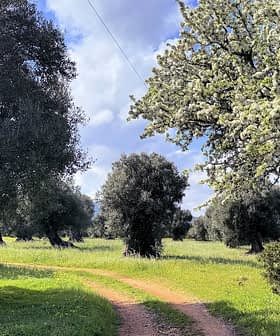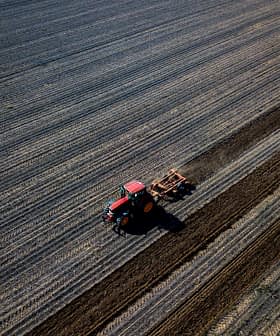Turkey Announces Plan to Advance Sustainable Agriculture

A greener approach to agricultural production is at the heart of a new sustainable development plan announced by the Turkish government.
The world’s largest organic olive oil exporter plans to significantly renew the country’s agriculture, industry and transport sectors to reduce their impact on the environment while ensuring their competitiveness in a quickly changing international scenario.
“The Green Reconciliation Action Plan is a roadmap compatible with the transformational policies that are taking place throughout the world economies, especially in the E.U.
The new strategy includes dozens of actions such as promoting organic farming, technological innovation, recycling and the implementation of renewable energy sources.
The new Green Reconciliation Action Plan announced by Ankara focuses on sustainability. It has been presented in response to the Fit-for-55 plan, which the European Commission recently introduced, and the European Green Deal.
See Also:Just when Olive Oil Tourism Was Trending in Turkey, the Pandemic HitWhile the country is not an E.U. member, Brussels estimates that more than 42 percent of all Turkish exports go to E.U. countries, which will soon be bound by stricter rules about the origin of their imports.
Turkey’s Ministry of Trade estimated that in 2020 the total value of Turkish exports to the European Union exceeded €120 billion.
To stay competitive, “it is essential to create an efficient and highly productive agricultural sector that is environmentally and socially sustainable,” the Turkish government said in its new plan.
According to the ministry, Turkey will be among the countries most affected by climate change, in part, due to its geographical location.
See Also:The Best Olive Oils from TurkeyTherefore, “it is important for our country to take actions toward sustainable agriculture” and “studies will be carried out to reduce the use of pesticides, anti-microbials and chemical fertilizers in our country.”
The plan also details the need to make organic farming and bio-technical methods more popular among farmers since the demand for organic products is growing, and this “creates opportunities for the development of sustainable and environmentally friendly organic farming production.”
According to the plan, new land consolidation registration activities will also be carried out to develop farms and investments further.
The plan also aims at creating the conditions for the re-use of waste and residues derived from farming activities while also raising consumer awareness about the product cycles.
While agriculture plays a pivotal role in the Turkish economy, significant efforts laid out in the plan will be dedicated to the renewal of industrial areas, including new green districts for innovation and sustainability, focusing on renewable energy strategies, specifically geothermal energy.
A task force focused on maximizing the effort will bring together researchers from public and private entities – universities, manufacturers and technology companies, among others.
A specific national database will gather data on raw materials, processes and emissions. Those data will help define the scope and the areas of intervention while also devising an environmental labeling system.
“The Green Reconciliation Action Plan is a roadmap compatible with the transformational policies that are taking place throughout the world economies, especially in the E.U.,” said Mehmet Muş, Turkey’s trade minister. “It encourages green investments, contributes to the transformation of global value chains and thus supports value-added production.”








